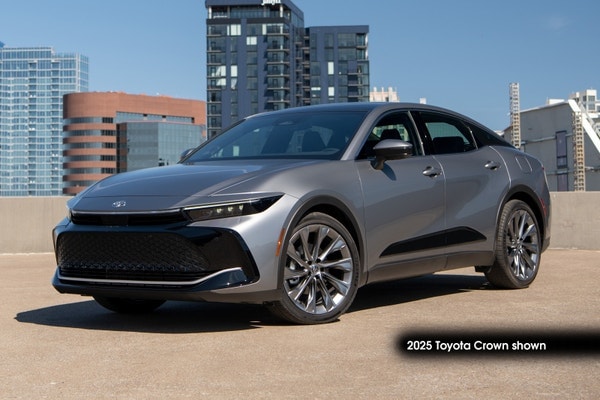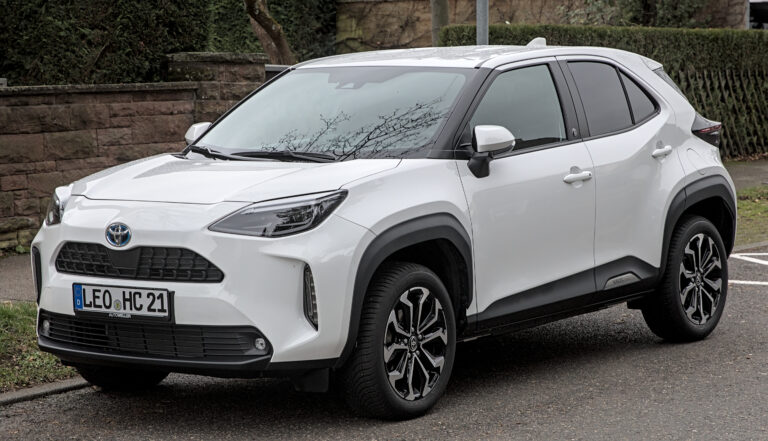2026 Toyota Tacoma Ev Price
Market Overview
The electric vehicle (EV) market is rapidly expanding, driven by increasing environmental concerns, government incentives, and technological advancements. In 2023, the global EV market was valued at $330 billion and is projected to reach $1.3 trillion by 2030, exhibiting a compound annual growth rate (CAGR) of 21.1%. This growth is primarily attributed to the rising demand for sustainable transportation solutions and the increasing availability of affordable EV models.
The competitive landscape for electric pickup trucks is heating up, with major players like Ford, Rivian, and Tesla vying for market share. Ford’s F-150 Lightning, Rivian’s R1T, and Tesla’s Cybertruck are among the most anticipated electric pickup trucks in the market. These vehicles offer impressive performance, range, and towing capabilities, challenging the dominance of traditional gasoline-powered pickup trucks.
Toyota’s EV Strategy
Toyota, a pioneer in the automotive industry, has set its sights on a transformative journey towards electric vehicles. The company’s ambitious plans encompass a comprehensive strategy that combines technological advancements, strategic partnerships, and a customer-centric approach. Toyota aims to lead the charge in the transition to sustainable mobility, striving to create a greener future while maintaining its position as a global automotive leader.
Timeline and Investment
Toyota has Artikeld a clear timeline for its EV rollout, with significant milestones planned in the coming years. The company has committed to investing billions of dollars in research and development, infrastructure, and manufacturing facilities dedicated to electric vehicles. These investments underscore Toyota’s long-term commitment to shaping the future of transportation.
Product Lineup
Toyota’s EV strategy includes a diverse lineup of electric vehicles, ranging from passenger cars to commercial vehicles. The company has already introduced several successful EV models, including the bZ4X SUV and the Proace Electric van. Toyota plans to expand its EV offerings, with a target of launching 30 new electric models by 2030.
Partnerships and Collaborations
Toyota recognizes the importance of collaboration in the rapidly evolving EV landscape. The company has formed strategic partnerships with industry leaders, including Panasonic and Subaru, to leverage expertise and accelerate the development of advanced EV technologies. These partnerships enable Toyota to share knowledge, resources, and infrastructure, fostering innovation and driving progress.
Customer Focus
At the heart of Toyota’s EV strategy lies a customer-centric approach. The company is committed to delivering electric vehicles that meet the diverse needs of consumers. Toyota aims to provide a range of options, including affordable and accessible models, to cater to a wide audience. Additionally, Toyota is investing in charging infrastructure and customer support services to enhance the overall EV ownership experience.
Environmental Impact
Toyota’s EV strategy is deeply rooted in environmental sustainability. The company recognizes the urgent need to reduce carbon emissions and combat climate change. Electric vehicles play a crucial role in achieving these goals, as they produce zero tailpipe emissions and contribute to cleaner air. Toyota’s commitment to EVs is a testament to its dedication to protecting the environment for future generations.
Customer Perception and Demand
Understanding customer perception and demand is crucial for the success of the 2026 Toyota Tacoma EV. A thorough analysis of potential customer segments, their needs, and preferences will help Toyota tailor the Tacoma EV’s features and marketing strategies effectively.
To gauge customer perception and demand, Toyota can conduct surveys or focus groups. These research methods will provide valuable insights into the target market’s awareness, attitudes, and purchase intentions towards electric vehicles in general and the Tacoma EV specifically.
Factors Influencing Customer Demand
Several factors can influence customer demand for the Tacoma EV. Environmental concerns are a significant factor, as consumers become increasingly conscious of the environmental impact of their transportation choices. Government incentives, such as tax credits or rebates, can also stimulate demand by reducing the upfront cost of purchasing an electric vehicle.
The availability and accessibility of charging infrastructure are critical factors that can affect customer demand. A well-developed charging network, with convenient and reliable charging stations, can alleviate range anxiety and increase the appeal of electric vehicles.
Financial Implications
The 2026 Toyota Tacoma EV presents both opportunities and challenges for Toyota’s financial performance. This electric vehicle (EV) has the potential to significantly impact the company’s revenue, profitability, and market share, but it also involves substantial investments and strategic considerations.
In the long term, Toyota’s EV strategy aims to position the company as a leader in the growing EV market. By introducing the Tacoma EV, Toyota can capitalize on the increasing demand for electric vehicles, particularly in the pickup truck segment. This could lead to increased sales volume and revenue for the company.
Profitability
The profitability of the Tacoma EV will depend on several factors, including production costs, battery technology advancements, and consumer acceptance. The initial investment in developing and manufacturing the EV will be substantial, but Toyota expects to achieve cost reductions over time as production scales up and battery costs decline.
The Tacoma EV’s profitability will also be influenced by the competitive landscape. Toyota faces competition from established automakers as well as emerging EV startups. The company will need to differentiate its EV offerings and maintain a competitive price point to secure market share and maximize profitability.
Market Share
The Tacoma EV has the potential to strengthen Toyota’s market share in the pickup truck segment. By offering an electric option, Toyota can appeal to environmentally conscious consumers and those seeking the benefits of electric vehicles, such as reduced fuel costs and lower emissions.
However, the Tacoma EV will also face competition from other electric pickup trucks entering the market. Toyota’s success in gaining market share will depend on the vehicle’s performance, features, and overall value proposition compared to its competitors.
Return on Investment
Toyota’s EV strategy, including the Tacoma EV, is a long-term investment. The company expects to see a positive return on investment over time as the EV market grows and consumer demand for electric vehicles increases.
The return on investment will depend on the overall success of Toyota’s EV strategy, including sales volume, profitability, and market share gains. The company will need to carefully monitor the market and adjust its strategy as needed to maximize the return on its investment.
Environmental Impact

The 2026 Toyota Tacoma EV is a significant step forward in the automotive industry’s transition to electric vehicles. As an all-electric pickup truck, the Tacoma EV produces zero tailpipe emissions, making it a much cleaner alternative to gasoline-powered trucks. By eliminating the use of fossil fuels, the Tacoma EV can significantly reduce greenhouse gas emissions and improve air quality.
Compared to gasoline-powered pickup trucks, the Tacoma EV has a much lower carbon footprint. According to Toyota, the Tacoma EV is expected to produce around 60% fewer greenhouse gas emissions over its lifetime than a comparable gasoline-powered truck. This reduction in emissions is primarily due to the fact that the Tacoma EV does not produce any tailpipe emissions while driving. Additionally, the Tacoma EV’s regenerative braking system helps to capture energy that would otherwise be lost during braking, further reducing its environmental impact.
Emissions and Energy Consumption
- Zero tailpipe emissions while driving
- Approximately 60% lower greenhouse gas emissions over its lifetime compared to gasoline-powered trucks
- Regenerative braking system captures energy during braking, reducing energy consumption
Air Quality Benefits
- Eliminates tailpipe emissions of harmful pollutants such as nitrogen oxides and particulate matter
- Contributes to improved air quality in urban areas
- Reduces the risk of respiratory and cardiovascular health problems associated with air pollution
Design and Innovation

The 2026 Toyota Tacoma EV boasts a cutting-edge design that sets it apart from traditional gasoline-powered pickup trucks. Its sleek and futuristic exterior features sharp lines, aerodynamic curves, and an aggressive stance.
Unlike conventional pickups, the Tacoma EV incorporates an enclosed bed, providing improved aerodynamics and storage security. The bed is equipped with a power-operated tailgate and an adjustable bed floor, offering versatility and ease of use.
Unique Features
- Integrated Solar Panels: The Tacoma EV’s roof is equipped with integrated solar panels that harness sunlight to charge the battery, extending the vehicle’s range.
- Digital Side Mirrors: Replacing traditional side mirrors, the Tacoma EV utilizes digital cameras that project a clear and wider field of view on interior screens, reducing blind spots and improving visibility.
- Terrain Management System: The Tacoma EV features an advanced terrain management system that optimizes the vehicle’s performance for various off-road conditions, ensuring exceptional handling and stability.
FAQ Section
When is the expected release date of the 2026 Toyota Tacoma EV?
The official release date has not yet been announced by Toyota.
What is the estimated price range for the 2026 Toyota Tacoma EV?
The expected price range is anticipated to be between $40,000 and $60,000.
What are the key features and specifications of the 2026 Toyota Tacoma EV?
Key features include an all-electric powertrain, advanced battery technology, spacious cabin, and robust off-road capabilities.
How does the 2026 Toyota Tacoma EV compare to competitors in the electric pickup truck market?
The Tacoma EV is expected to rival popular models such as the Ford F-150 Lightning and the Rivian R1T.

